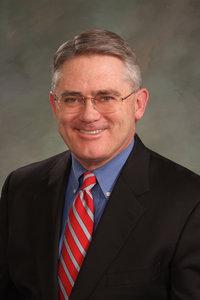DENVER — A bill that passed on second reading in the Senate on Thursday, appears to grant senators a nearly 8 percent raise at a time when the state faces more than $3 billion in budget cuts.
However, the pay increase is a bit more complicated than the assumption lawmakers are giving themselves a raise while nearly 500,000 claims have been filed for unemployment benefits since Gov. Jared Polis shut down the economy in response to the Coronavirus.
House Bill 20-1345 is the Legislative Appropriations Bill that is technically part of the full budget but is voted on separately to ensure the legislature’s budget is safe and it has the money it needs to pay its bills. The full bill appropriates just under $51 million to the legislature for operating expenses, which include departments such at the state auditor, the Joint Budget Committee, and the Legislative Council, to name a few.
Part of that bill appropriates $17.5 million for expenses related directly to the General Assembly, including $4 million in base salaries for the 100 state legislators, and part of that includes bringing half the 35 senators now in office (or whomever replaces them in the November election) in line with the salaries of their colleagues.
The current salary system is the result of Senate Bill 15-288, which was passed in 2015 to take the responsibility off legislators of voting on their own raises. Instead, it made them automatic and tied them to the percentage of raises given county judges. The initial increase went from $30,000 per year to $40,242 per year.
However, it was disproportionate, as the statute laid out when the new salary would go into effect with some members currently making the higher amount, and others earning the lessor amount.

The statute has been complicated since it took effect, said Senate Minority Leader Chris Holbert, who along with House Minority Leader Patrick Neville are cosponsors on the appropriations bill.
For example, Sen. Bob Rankin, who was elected to the House in 2018, initially earned the $40,242. When Sen. Randy Baumgardner resigned and Rankin was appointed to finish his senate term, Rankin’s salary returned to $30,000 because Baumgardner’s seat was not yet eligible for the increase. Rankin will return to the higher salary if he is re-elected this fall.
And that only happens with the passage of HB 1345 because SB 288 put the pay scale in state statute, and the statute did not take effect until January 2019.
So in 2019 all 65 members of the House of Representatives, who are elected every two years, and half the senators, who are elected every four years got the bump. Yet, the other half of the senators who were not up for election in 2018 were left out of the increase.
This bill assures that the 18 senators who will be elected in 2020 will earn the same as their 82 counterparts.
Further complicating matters is another automatic raise that was the result of SB 288, which tied legislator raises to the same percentage of raises received by county judges. County judges received a raise on January 1, 2020. Therefore, lawmakers are also due a raise, which is estimated between $899 and $1,207 per year, beginning January 2021.
Because the appropriation bill is required to pass, and the raises are in state statute, this bill cannot be amended to nullify the raises.

Senator Rob Woodward, R-Loveland, hopes to find a way around that. He requested permission on Friday to run a late-bill that would put the 2021 raise on hold for at least two years.
“At least when most people in Colorado are suffering — whether they are employees or small business owners — I think we should share their pain,” Woodward said. “This would put on hold the increase that would go into effect this year.”
Whether the legislators get the option to vote on the extra raise is now up to Senate President Leroy Garcia, who must approve the late bill to run. As of Saturday afternoon, Woodward had not heard from Garcia.
Finally, an increase to non-metro area legislators’ per diem is also due to increase under SB 288. That rate, which is a daily stipend given legislators who live farther than 50 miles from the state capitol, is tied to 85 percent of the federal elected officials per diem. It is scheduled to increase from $219 per day in 2019-20 to $231 per day in 2020-21. There is discussion to run a bill to suspend that as well.
Both Woodward and Holbert said they would support a suspension of all raises if Democrats allow the bills to be run.
“We need to call a time out on that,” Holbert said. “Shut it off for two years until next assembly and see where we are, then.”
Woodward agreed, adding he started opposing this measure in March when it first came before legislators and even thought about requesting lawmakers give back some of their salaries to stand with small businesses.
“We need to make cuts across the board, including salaries,” Woodward said. “When government shut down business for 10 weeks, we shouldn’t be taking salaries if we have demanded private business also stop taking revenues.”


